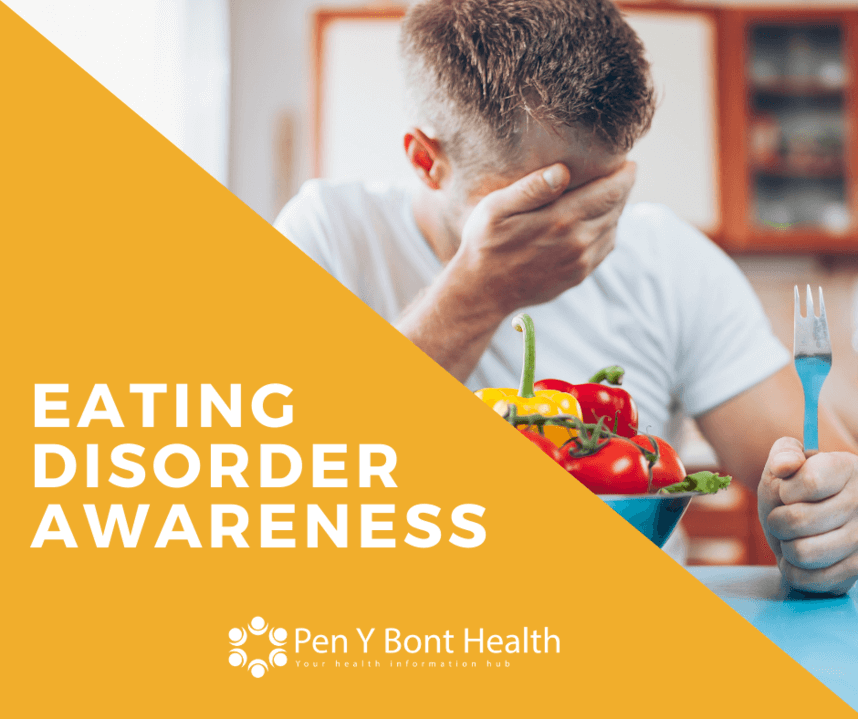
This week, February 28th-March 6th, raises awareness on the realities of eating disorders, with Eating Disorder Awareness Week (EDAW). An estimated 1.25 million people with an eating disorder live in the UK.
Eating disorders can include Anorexia Nervosa, Bulimia, Binge Eating Disorder and other specified feeding or eating disorders.
Our focus area for EDAW is support. If you or someone you care about is suffering from an eating disorder, it’s vital to know where you can turn for local support and how you can support others in your home, workplace or even online.
What type of support is available?
There is a vast array of NHS eating disorders support in Wales, including treatment and other forms of care. This can vary from NHS patient clinics, to dietitians, counselling, and online support.
Services in the Bridgend area include anonymous recovery groups and local clinical psychologists. There are even learning platforms available, to educate those wanting to support others.
Who is support available for?
Eating disorders can affect people of all ages, genders, ethnic groups and backgrounds. Support is available for everyone affected by an eating disorder. Whether you are an individual seeking advice after a diagnosis or whether you have concerns about a family member or a colleague, you can reach out to all services available. Which could be from a registered charity to a medical professional, or at a local meet up.
What’s happening this week for Eating Disorder Awareness Week?
Many people receiving and searching for support for eating disorders are sharing personal insights, recommendations, and even expressive art on social media, to raise awareness this week.
Those in supportive roles including carers and staff are also sharing their experiences surrounding eating disorders in community groups and in schools, highlighting support to a variety of people.
There is also a range of support, with the UK’s eating disorder charity BEAT (recommended by the NHS). They can provide access to local support through their online service directory for Bridgend and surrounding areas (across Wales and the UK) here.
How can I be supportive to others?
Recognising how distressing an eating disorder could be for another person or loved one, can be difficult. Supporting someone with an eating disorder could also affect your own physical and mental health, so it can be important to look after yourself too.
Using the local resources around you and gaining knowledge, can encourage supporting behaviour. Reminding yourself and your loved one that things can change, and recovery is possible, can be a reassurance during difficult times. Eating Disorders can cause significant harm and distress, but they can be treated. With the correct treatment, recovery is possible. All you can do is be there for the one you care about, keep listening to them and gently referring to support resources where appropriate.
When do I reach out?
If you are concerned about your health or the health of another person in regard to an eating disorder, you can reach out now. We have some helpful information explaining eating disorders, including common types of eating disorders, symptoms and advice on when to see your GP.
You can find all of this, along with a word from our GP here.
